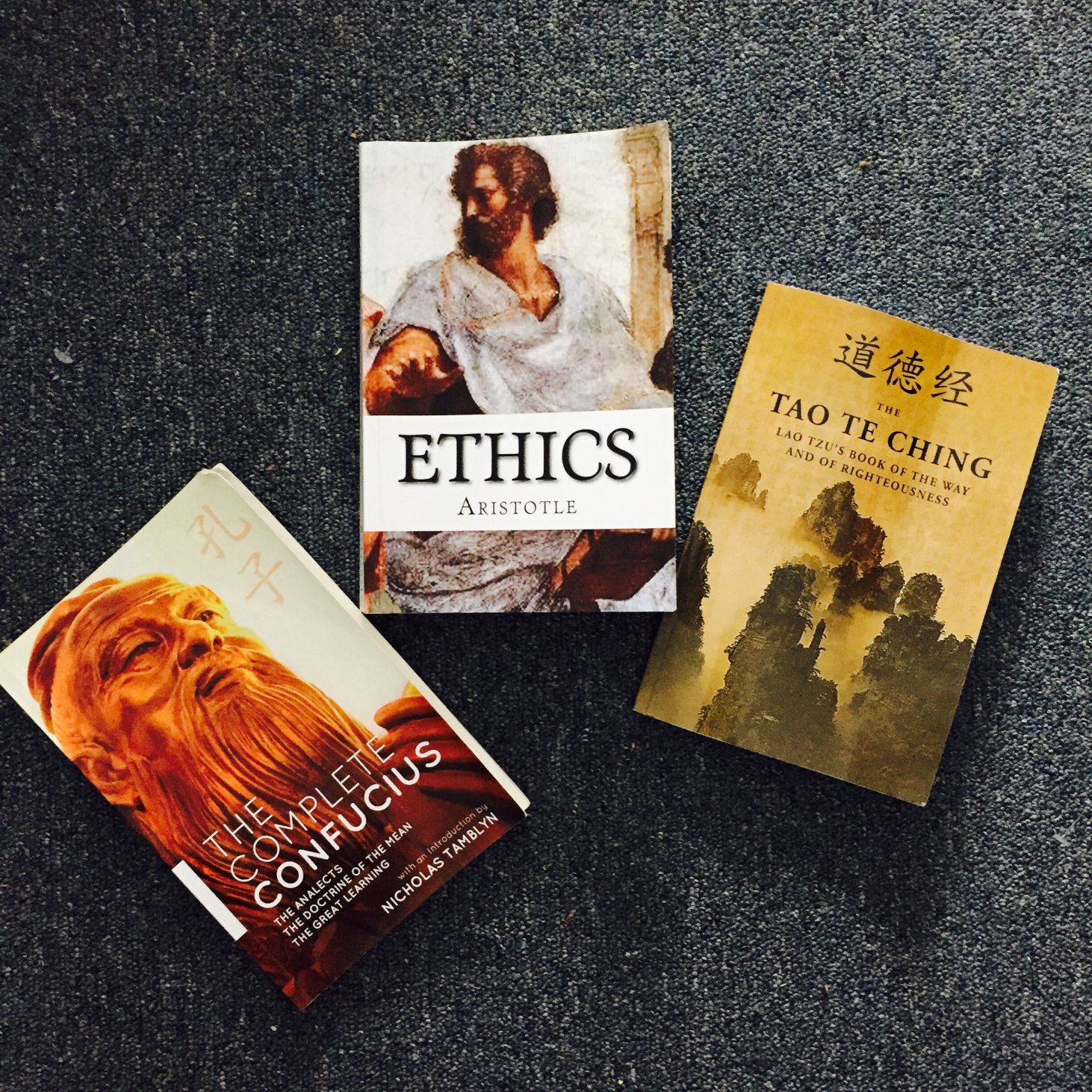The Mean: What It Is And Why It Matters

The Mean is an idea in philosophy of both the East and West. Confucius and Lao Tzu speak of it in their writings and Aristotle speaks of the Mean in his work Ethics. This post will discuss what the Mean is and why these two ideas of the same Mean created such different societies.
What is the Mean?
The idea of the Mean is simply a manner of behaving that is balanced and virtuous in an individual’s life. It is a balance that is found as an individual acts in a virtuous manner given certain situations. Aristotle defines these balances in great detail in Ethics, and Lao Tzu and Confucius define the ideas of balance, especially in Confucius’ Doctrine of the Mean.
This is not an idea that can be fully defined in a blog post or article, so this broad definition will have to suffice. For more information, read The Doctrine of the Mean, Ethics, and the Tao Te Ching.
The Similarities in the Works
The similarities in the ideas of the Mean between the East and West do not differ in what they find proper for an individual. Both describe virtue nearly the same and they both identify the same characteristics as virtuous.
Each one cites religious texts and uses them as a foundation for what is virtuous. Both use similar analogies to describe the virtues and vices. They share a similar cosmogony, identifying both a material world, perceivable and understandable through the senses, and an inmaterial world of the Logos, which is discoverable through reason and logic.
The Differences in the Works
The major difference in these works that produced such different societies is the way one finds the Mean. Both say that it is an individual’s choice to discover the Mean for himself, but the ideas can be taught. However, the focus on propriety in the Eastern Works places much of the burden on society to be virtuous. Confucius and Lao Tzu speak about the great king that brings virtue to his people. The argument is that society creates rules of what is virtuous for people to follow, and each individual should ascribe to that idea.
Aristotle, however, focuses on the aspect of individualism. His, as well as most other Western Works, focus on the individual’s virtue compounding until society is virtuous. Aristotle focuses on the individual doing what is proper for him at a certain time and in a certain situation. This allows for more mistakes to be made, but it also allows for individuals to do what is proper for themselves- in relation to a definition of that virtue- and attain a higher sense of understanding and nuance.
Why it Matters
By looking at the societies of the East and West today, it is obvious. The emphasis on the individual by Aristotle lead to the success of Europe and the United States of America, and the emphasis on propriety by Lao Tzu and Confucius lead to the success of the Chinese Empire and modern-day Japan.
Both of these ideas can be incredibly successful. They are simply different ways at guiding an individual’s understanding and education of virtue.
It is important to understand the differences because they create different weak points. If the idea of liberty collapses in the West, so does its notions of virtue. In the East, when society collapses so does virtue. This can be seen as the United States corrodes as it embraces large government and socialistic tendencies. In the East, the same can be said as China turned away from its religious ideas- primarily Confucius’ teachings- during the Communist Revolution, as they rejected the long-standing institution of propriety and hierarchy that built and maintained China for millennia.
Last Words
Eastern and Western Thought have many overlapping ideas, and understanding both the commonalities and differences shed light on the cultural discrepancies that are obvious today. By understanding this, it becomes easier to observe current events and analyze historical events.
Also, since this is a philosophy blog- READ THESE WORKS! And read works you agree with and disagree with. Read some that seem like they would be crazy, and some that affirm your arguments. These Eastern thinkers were a challenge I set for myself to read, and doing so has been incredibly rewarding, so try something new! Remember, “ Life begins at the end of your comfort zone.”- Neil Donald Walsch
Join the Conversation of Our Generation!!!
Subscribe to our email list for our Recommended Reading, reviews on books and other content that can grow your store of knowledge. New products will be coming soon, exclusively for subscribers.
If would like to join me in the Conversation of Our Generation, you can find me on YouTube Conversation of Our Generation YouTube Channel.
Also, follow me on Twitter @ConOfOurGen, Facebook Conversation of Our Generation Facebook Page and SteemIt @jamell
I am just trying to join the Conversation of Our Generation. Let’s get the dialogue going with comments, shares, questions, just say something!